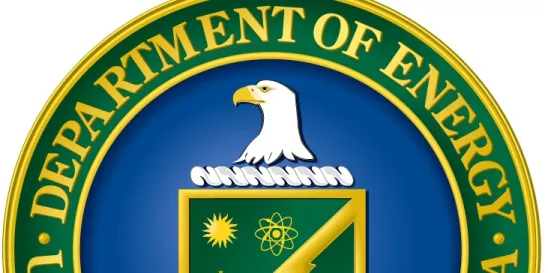Effective January 26, 2024, the White House froze Department of Energy (“DOE”) action on all pending and new requests for authorizations to export liquefied natural gas (“LNG”) to countries with which the United States does not have a free trade agreement (“non-Free Trade Agreement countries”). DOE announced it would keep the “temporary pause” while it conducts new studies on the economic and environmental impacts of LNG exports. DOE stressed the pause does not affect exports that already have been approved, and is “subject to exception for unanticipated and immediate national security emergencies.” The pause also does not affect exports to countries with which the U.S. has a Free Trade Agreement. This announcement comes with nearly two dozen pending applications for exports of roughly 15 billion cubic feet per day (“Bcf/d”) pending before the DOE.
Background
Section 3 of the Natural Gas Act requires DOE to approve applications to export LNG to non-Free Trade Agreement countries “unless, after opportunity for hearing, it finds that the proposed exportation . . . will not be consistent with the public interest.” DOE has approved a total of approximately 47 Bcf/d of LNG exports to non-Free Trade Agreement countries, and facilities supporting 14 Bcf/d of these exports have been built and placed into operation. DOE has received applications for a total of approximately 62 Bcf/d.
DOE has previously commissioned several studies of the economic and environmental impacts of LNG exports, and relies on these studies to support its findings that new LNG export authorizations are in the public interest. In 2018, DOE commissioned its most recent analysis of economic impacts, considering exports of up to 52.8 Bcf/d of LNG, and concluded that under all scenarios evaluated, increased LNG exports would be associated with higher overall gross domestic product, household income, and consumer welfare. In 2019, DOE conducted a lifecycle analysis of greenhouse gas (“GHG”) emissions associated with LNG exports, which concluded that to the extent U.S. LNG exports are preferred over coal in LNG-importing nations, U.S. LNG exports are likely to reduce global GHG emissions on a per-unit basis. However, the 2019 study did not determine whether authorizing exports of U.S. LNG to non-Free Trade Agreement nations will increase or decrease GHG emissions on a global scale, pointing to challenges in conducting such analysis given the complexity of international energy markets.
DOE’s Freeze on Review of LNG Export Applications
The White House announced that DOE will update its economic and environmental analyses, and halt its review of pending and new applications while these analyses are underway. Because DOE has only examined economic impacts of up to 52.8 Bcf/d of exports, but U.S. would have a total of roughly 62 Bcf/d of export capacity if all pending applications are approved, additional analysis would be intended to provide information on economic impacts of approval of these additional volumes. This analysis follows increasing arguments from manufacturing groups and environmental organizations that LNG exports are resulting in increased domestic natural gas prices.
Some environmental organizations are arguing that continued construction of export facilities is harming local communities and is inconsistent with the nation’s climate commitments. LNG advocates counter that U.S. exports displace or avoid higher emitting coal-fired generation in Asia and provide other geopolitical benefits, which is consistent with U.S. strategic interests and environmental goals. The DOE process will evaluate these and other claims.
The pause of review of pending applications marks an important departure from DOE’s past practice of continuing to process applications while updating its broader economic and environmental analyses. A DOE official has stated that the new studies will be issued after “some months,” and that the studies will be made available for public comment before being finalized. In the interim, would-be-exporters will face uncertainty over the fate of their applications.
Natural gas producers, pipeline companies, and export companies should closely monitor progress on these analyses and be prepared to comment on them once they are made available.







 />i
/>i

